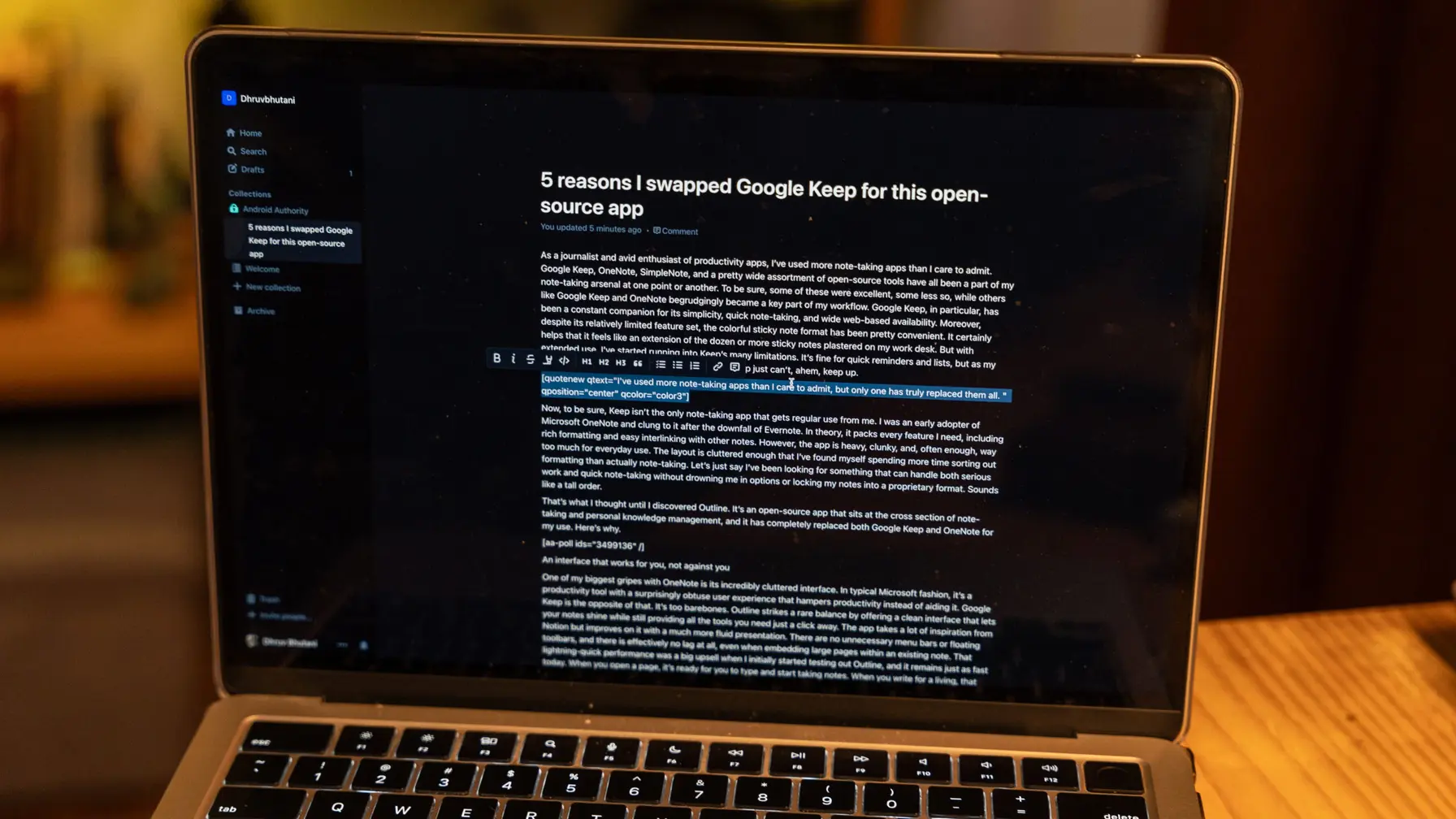T4K3.news
Outline Replaces Google Keep and OneNote for Serious Note Taking
A self hosted open source app offers data ownership and wiki like linking, winning over a veteran cloud duo.

A thoughtful look at why Outline, a self hosted open source app, may beat Google Keep and OneNote for deep work and knowledge management.
Outline Replaces Google Keep and OneNote for Serious Note Taking
Dhruv Bhutani reviews Outline, an open source note taking app that aims to replace Google Keep and OneNote for serious work. It stands out with a clean interface, instant typing, and markdown based formatting that stays consistent across editors.
Outline supports interlinking pages like a wiki, letting users build a connected knowledge network rather than a flat pile of notes. It embeds external documents and integrates with Slack and Zapier, expanding what a note app can do. The author emphasizes self hosting as a way to own data, avoid vendor lock in, and ensure exports remain portable.
On data and hosting, Outline’s self hosted model is pitched as a key benefit. Moving away from cloud only services means fewer worries about policy changes or data access by large firms. The author notes that exporting from Google Keep or OneNote can be tedious, while markdown based files stay portable. Outline’s plain text files make backups and future app swaps straightforward. The switch is driven by a need for both deep work and nimble everyday notes, with Outline delivering speed and structure without locking the user into a single platform. The author still uses Keep for quick scratch notes but relies on Outline for research and writing.
Key Takeaways
"Outline is built with markdown in mind."
Describes Outline's core design.
"There’s no proprietary lock-in here."
Author highlights data portability.
"I always try to maintain an offline, self-hosted copy of every file, document, or photograph."
Author discusses data ownership and backups.
"Data ownership is the biggest upsell."
Editorial opinion on the value of self-hosting.
The move to Outline signals a broader push toward personal knowledge management and open source tools in a world saturated with cloud first apps. It highlights a desire for data portability, transparency, and simpler formats that survive platform shifts. Yet the benefits come with tradeoffs: self hosting demands technical know how and ongoing maintenance, which may deter casual users. If Outline grows as a general knowledge base, it could encourage more interoperability and reduce reliance on any one vendor. The piece suggests a future where readers choose tools that offer both control and cohesion rather than convenience alone.
Highlights
- Outline is built with markdown in mind
- Notes that live as plain text travel far
- There’s no proprietary lock in here
- I always try to maintain an offline, self hosted copy of every file
Privacy and data ownership risk
Choosing Outline means taking control of data, but it shifts responsibility to the user. Self hosting requires technical setup, security management, and regular backups. Readers should consider their capacity to maintain privacy and access if the project stalls or changes direction.
As tools evolve, readers will weigh control against convenience in their own workflows.
Enjoyed this? Let your friends know!
Related News

Putin and US envoy meet ahead of Trump deadline
C. Scott Brown considers returning to Google Pixel

AI testing raises caution about history tools

Fantasy preseason update

Google apps face user criticism

AT&T CEO issues strong message on employee engagement

Private investment urged to save Intel lead

Call of Duty Season 5 Goes Live Tomorrow
